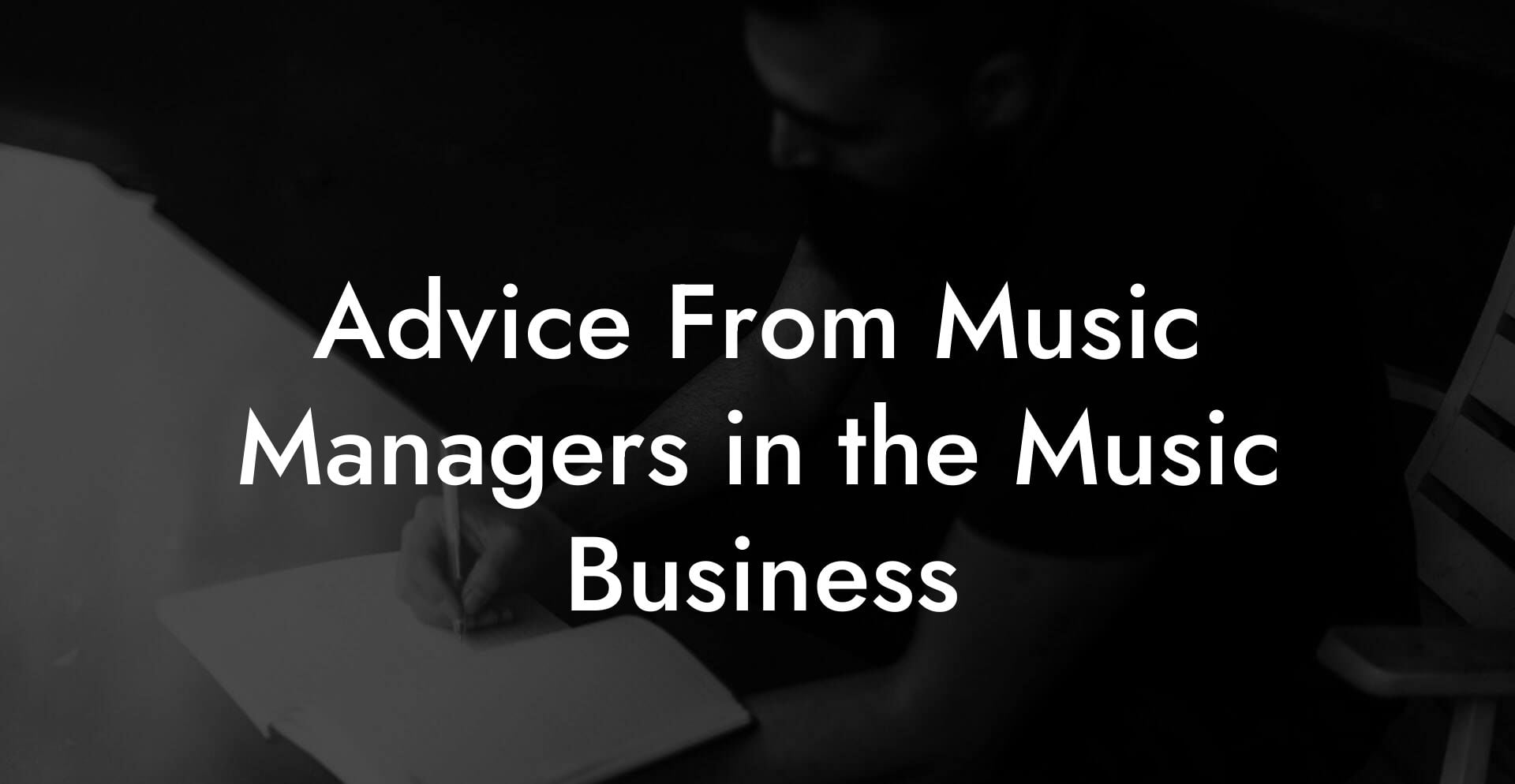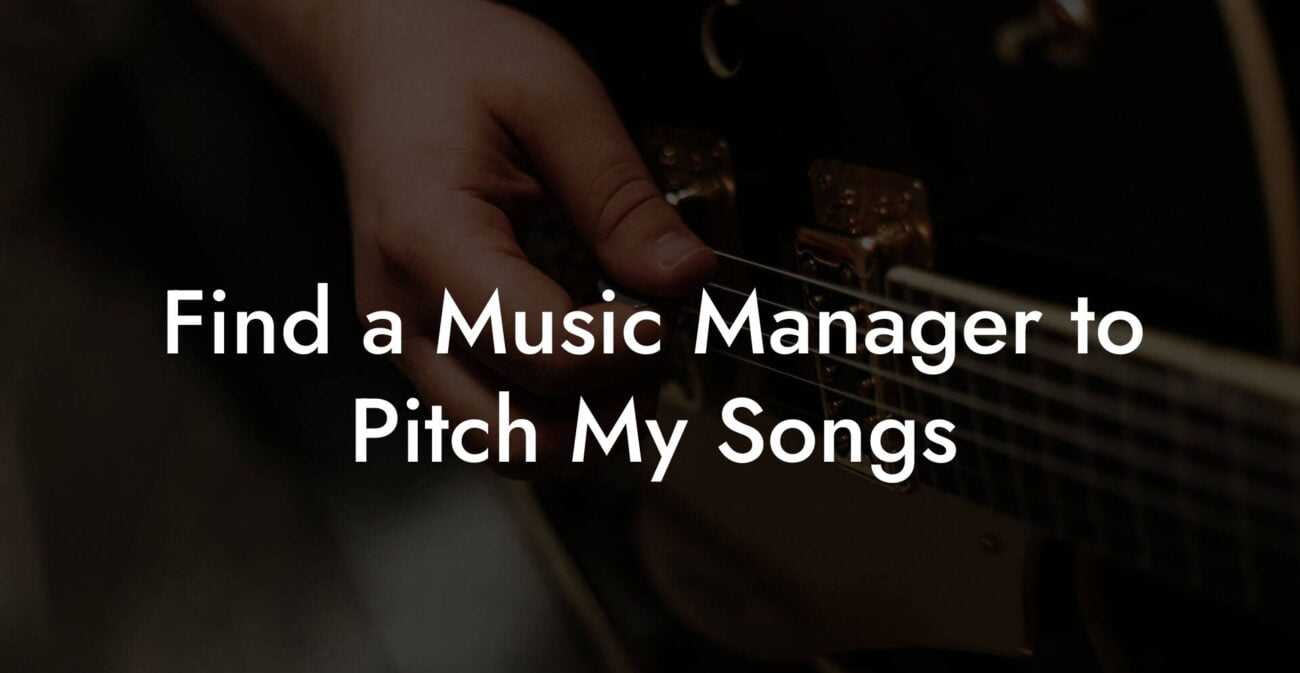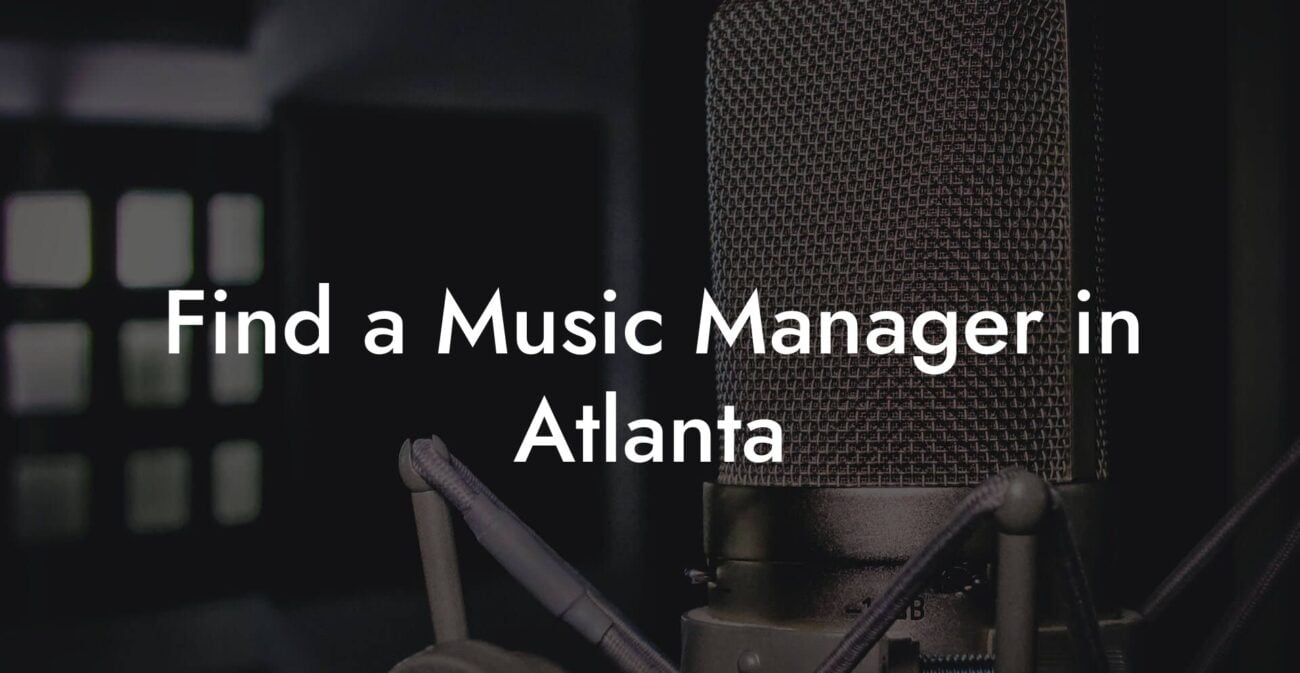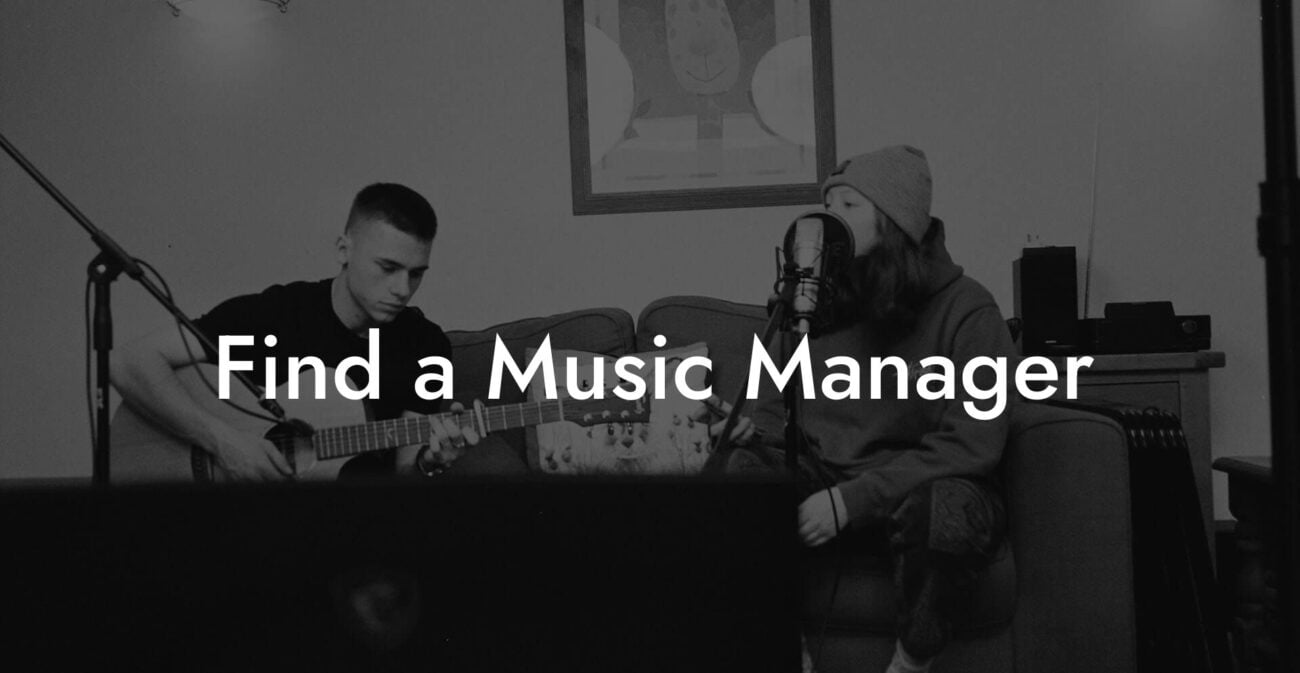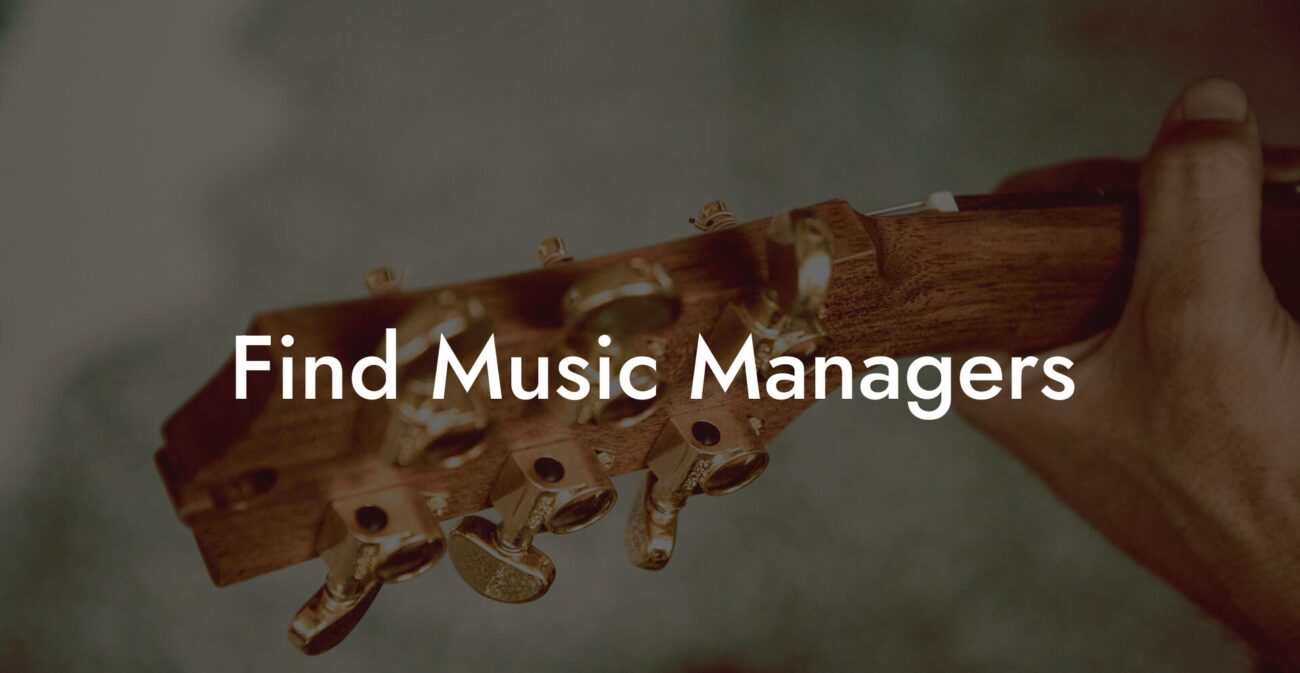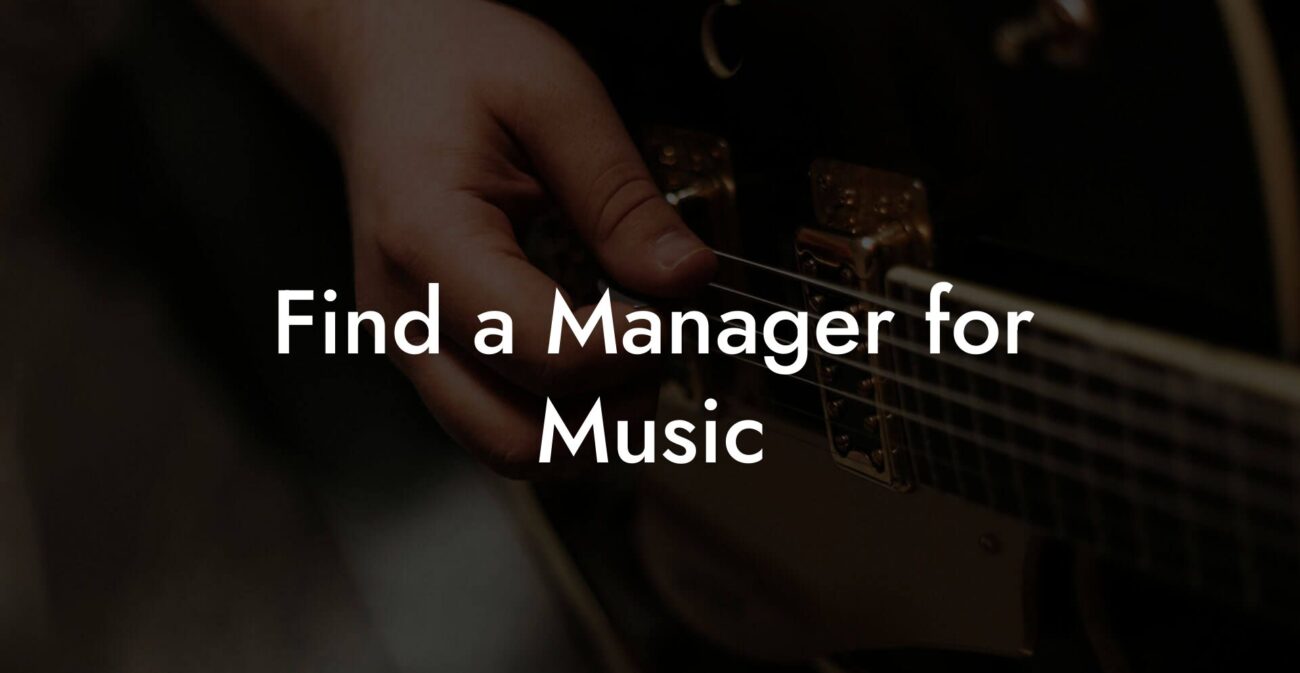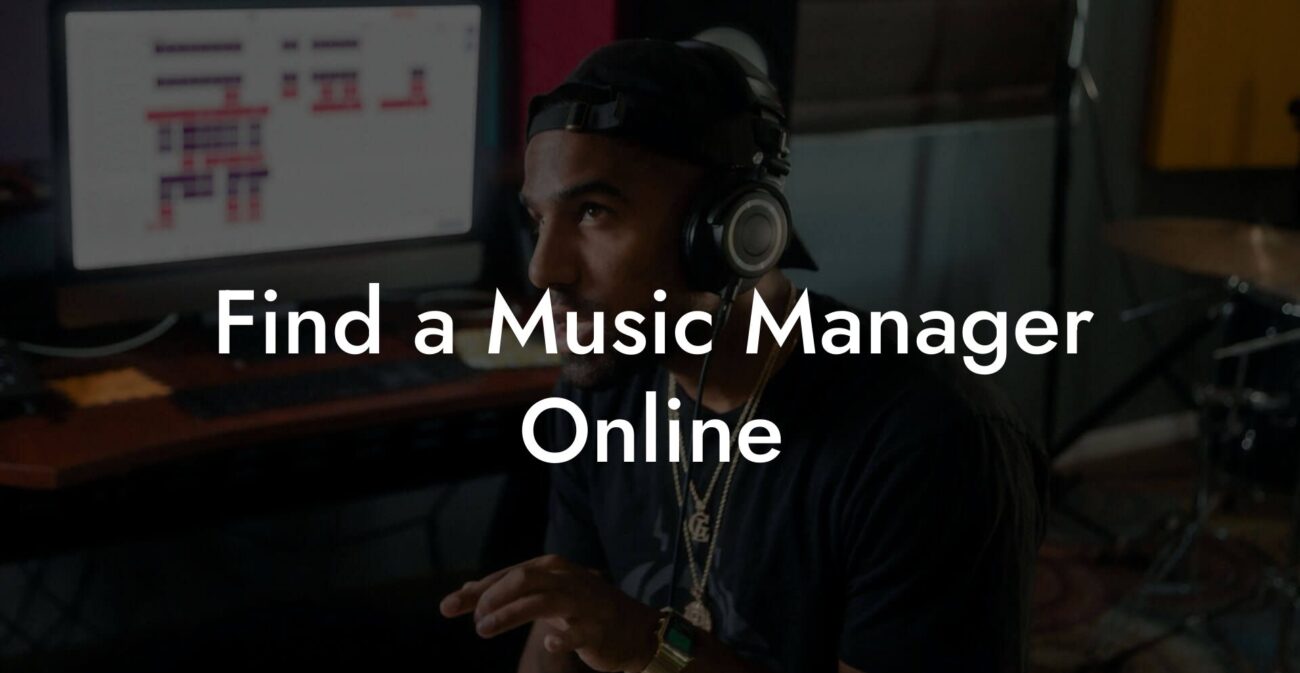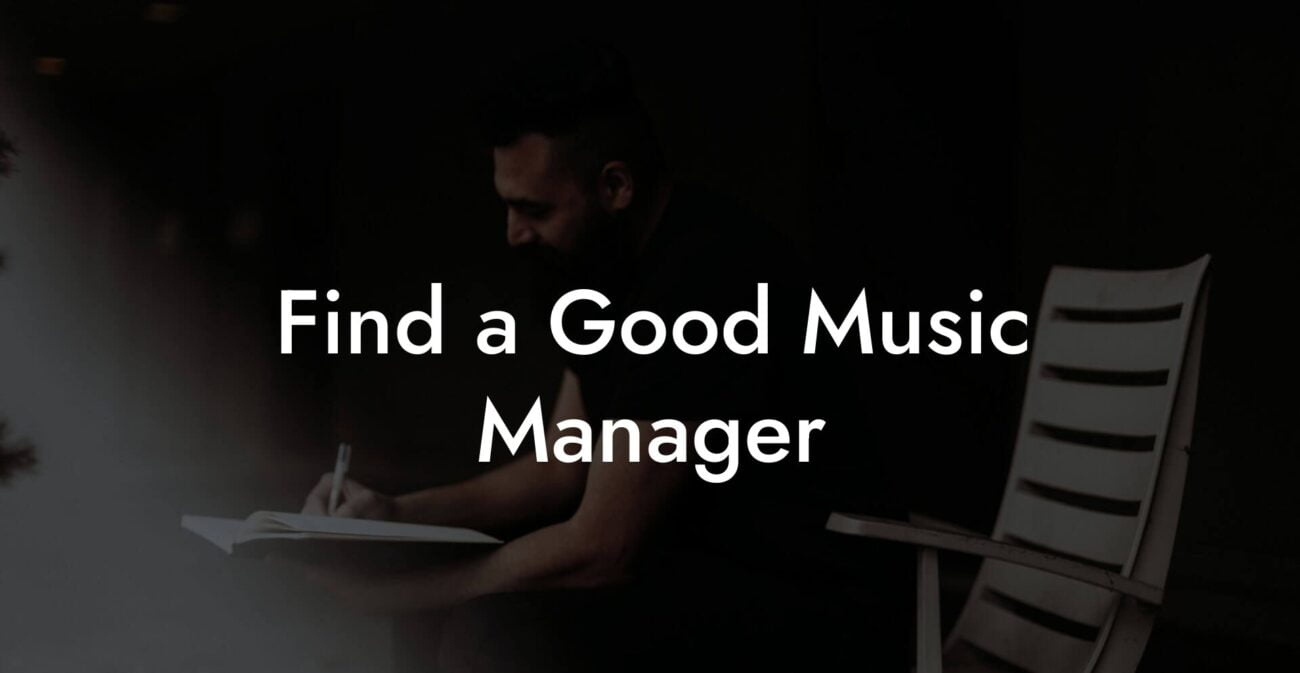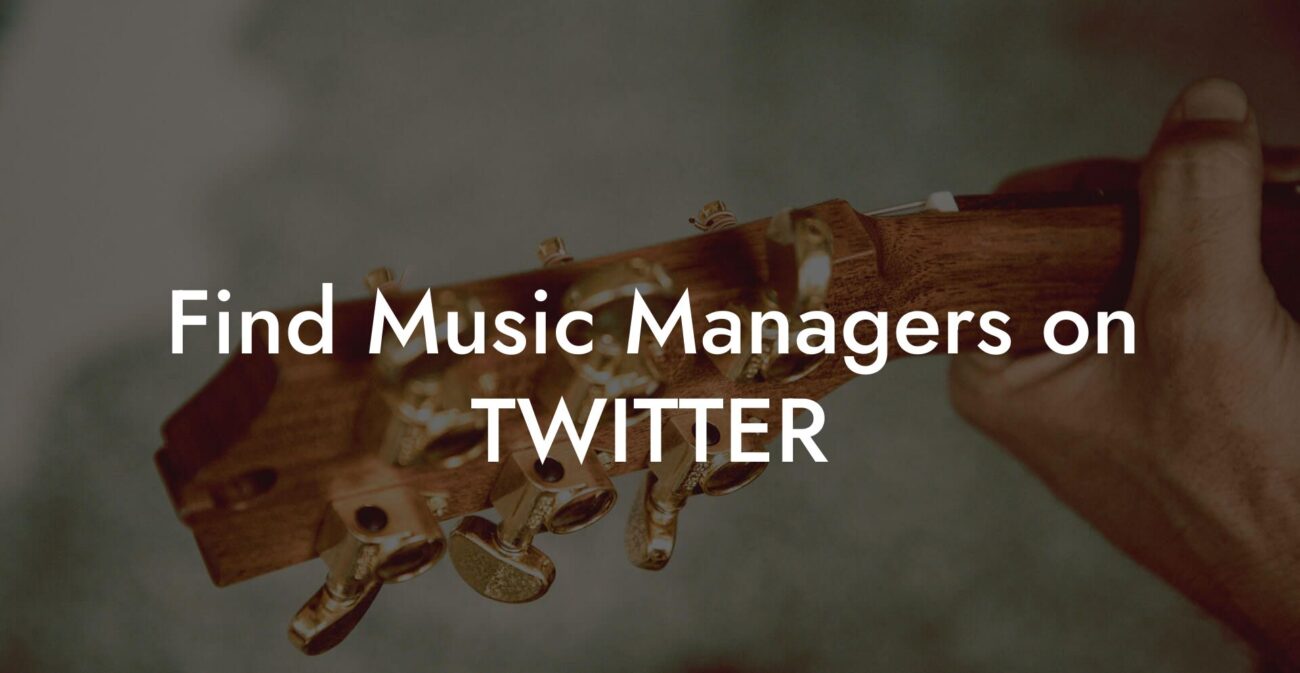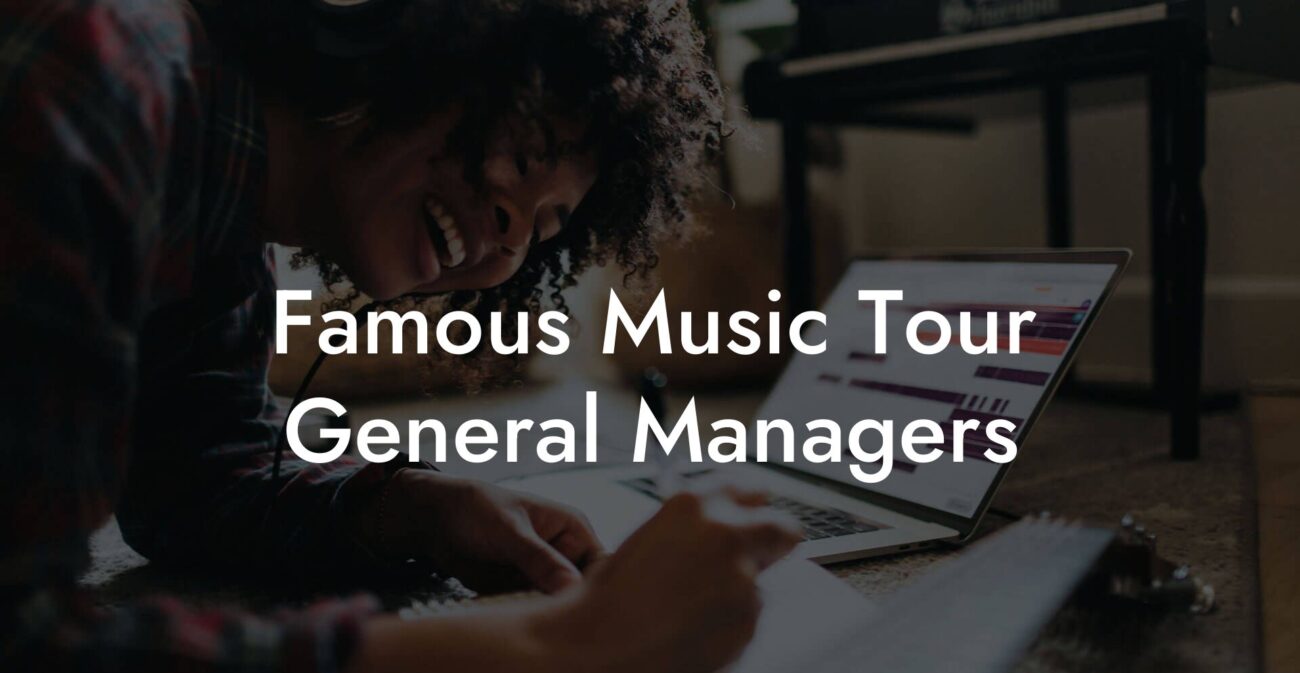Congratulations on making your way into the world of music! As an aspiring artist, you may be yearning for guidance on this new path. In the music business, one person who can shepherd you towards artistic success in your career is a music manager. What is the role of a music manager, you ask? What advice have experienced music managers imparted to aspiring artists like you on their way to success? Through this article, we aim to answer these questions and more!
Advice From Music Managers in the Music Business Table of Contents
The Importance of a Music Manager
The Importance of a Music Manager
A music manager is an indispensable part of your support system in the music industry. They help drive your career forward by effectively marketing your talent and organizing your professional activities. Their responsibilities may include negotiating contracts, connecting you with industry professionals, managing your financial affairs, and providing consultation on career decisions. A reliable music manager can truly help you navigate the complex landscape of the music business.
Advice from Experienced Music Managers
1. Be Authentic
Write Hit Songs Like a Professional Songwriter
The ultimate songwriting tool that takes your creative vision to the next level! With just a few clicks, you can unleash your inner songwriter and craft a hit that's uniquely yours. You own it.
Music managers universally stress the importance of authenticity in an artist's career. Being genuine with your music will not only set you apart from other artists but also create a stronger bond with your audience.
2. Network
In a business where relationships and connections are key, building a network can be a game-changer. Attend industry events, participate in forums, connect with people on virtual platforms to expand your outreach in the music world.
3. Prioritize Your Online Presence
Maintaining a strong online presence is crucial in the current digital era. Sharing updates about your work, maintaining regular engagement with followers, and real-time interaction with your fan base can greatly boost visibility and popularity.
4. Be Perseverant
The music business can be challenging and rejections are part of the journey. Music managers encourage artists to not be disheartened by failures, but to use them as stepping stones and always persist in their endeavors.
Advice From Music Managers in the Music Business Example:
To put this advice into a realistic example, consider an independent artist Joshua, who recently started his music carer. By staying true to his unique style, he distinguished himself from other emerging artists. He expanded his network by attending music events and creating an energetic online presence. Joshua faced multiple rejections along the way but remained focused and persistent. With the guidance of a music manager and his diligent efforts, Joshua gradually gained recognition and finally managed to land his major break in the music industry.
Frequently Asked Questions
What is a music manager's role in an artist's career?
A music manager plays a critical role in guiding and shaping an artist's career. They are responsible for developing the artist's brand, coordinating various aspects of their professional affairs such as promotion, performances, recordings, and business deals. Their goal is to create opportunities for growth and navigate the complexities of the music industry on behalf of the artist.
How do I choose the right music manager for my career?
Choosing the right music manager is about finding a balance between experience, connections, and personal chemistry. Look for someone who believes in your music, has a solid network within the industry, understands your vision, and has a track record of successfully managing other artists in a similar genre or stage in their career.
When should I start looking for a music manager?
Artists should start looking for a music manager when they feel overwhelmed by the business side of their career or when they need professional guidance to reach the next level. If you're regularly performing, recording, and have a growing fanbase, it might be time to seek management.
What percentage does a music manager typically take?
Music managers typically take between 15-20% of an artist's gross income. The exact percentage can vary based on numerous factors, including the level of the artist's success, the manager's experience, and the specific arrangement they've negotiated.
Can a music manager help me get a record deal?
Yes, a skilled music manager can significantly improve your chances of landing a record deal. They can leverage their industry contacts, pitch your music to labels, and help to negotiate contract terms that are in your best interest.
How can I tell if a music manager is reputable?
To determine if a music manager is reputable, request references and look into their past work. Research their professional history, check for any industry associations or credible partnerships, and ask for testimonials from current or former clients.
What are the key qualities to look for in a music manager?
Key qualities in a music manager include strong communication skills, extensive industry knowledge, strategic thinking, a network of contacts, a good reputation, and a genuine passion for your music. You should also seek someone who is transparent, reliable, and committed to your long-term success.
Should my music manager have a contract with me?
Yes, it's essential for both the artist and the manager to have a clear and legally binding contract. This ensures that expectations are set, roles are defined, and both parties are protected. Always consult with a lawyer before signing any contracts.
What if my manager and I have different visions for my career?
If you and your manager have differing visions for your career, communication is key. Have open and honest discussions to see if you can reach a compromise. If your visions are wholly incompatible, it might be time to reassess the partnership.
How often should I expect to communicate with my music manager?
Communication frequency with your music manager can vary depending on your activities and needs, but generally, you should expect regular updates and be in contact at least weekly. Effective communication is crucial to ensure you're both aligned on strategies and goals.
What can I do to ensure a good working relationship with my manager?
To ensure a good working relationship with your manager, maintain open lines of communication, set clear goals and expectations, be receptive to feedback, and establish mutual respect. Remember, this is a partnership that requires trust and collaboration from both sides.
Can a music manager help me with my overall brand and image?
Yes, music managers often play a significant role in crafting and maintaining an artist's brand and image. They work with artists to develop visual aesthetics, public personas, and marketing strategies that resonate with the target audience.
Is it okay to change music managers if I'm not satisfied?
Yes, if you're not satisfied with your current management and have made efforts to resolve issues without success, it is acceptable to seek new management. Ensure you handle the change professionally and consider the terms of your contract regarding termination.
Can I negotiate the terms and conditions of a management contract?
Yes, you can and should negotiate the terms and conditions of a management contract to make sure it aligns with your interests and career goals. It's recommended to consult with a legal professional experienced in the music industry during negotiations.
How do I know when it's time to part ways with my current manager?
It might be time to part ways with your current manager if your career isn't progressing, if there's a consistent lack of communication or trust, or if your manager's vision diverges widely from your own. Regularly evaluate the effectiveness of the partnership and don't be afraid to make changes if necessary.
Should I have a trial period with a new manager?
A trial period with a new manager can be beneficial for both parties. It allows time to build trust, establish a working rhythm, and ensure there's a good fit before making a long-term commitment. Include the trial period terms in your management contract.
How involved should my manager be in creative decisions?
The level of a manager’s involvement in creative decisions varies from one artist to another. While some artists prefer their managers to have a say in creative choices, others may want to retain full creative control. Discuss and agree upon this aspect early in your relationship to avoid conflicts.
What are the risks of not having a music manager?
Not having a music manager can lead to missed opportunities and a potential lack of direction in your career. You may also struggle with the workload, coordinating all business aspects while trying to focus on your music, which can result in burnout.
Can my music manager help me with tours and live performances?
Yes, your music manager can help you arrange and manage tours and live performances. They will often negotiate contracts, book shows, plan travel arrangements, and coordinate with venues and promoters on your behalf.
How does a music manager contribute to an artist's financial planning?
A music manager contributes to an artist's financial planning by offering advice on budgeting, investments, and revenue streams. They also ensure that their clients are making financially sound decisions and help them to maximize their income from various sources within the industry. However, for detailed financial planning, it is often recommended to work with a professional financial advisor.
What happens if I sign with a label? Will I still need a manager?
Even if you sign with a label, having a manager remains beneficial. A manager can serve as an intermediary between you and the label, ensure that the label fulfills its contractual obligations, and continue to look out for your best interests in areas that the label may not cover.
Now equipped with invaluable advice from experienced music managers, you stand a greater chance of thriving in your music career. Remember, every artist's journey is unique, and there is no set formula for success. However, staying true to yourself, building a network, maintaining an online presence, and being steadfast in the face of adversity will certainly steer you in the right direction. Remember to browse other guides on Lyric Assistant for more helpful advice and insights into the music industry. If you found this article informative, do share it with your fellow music aspirants!

